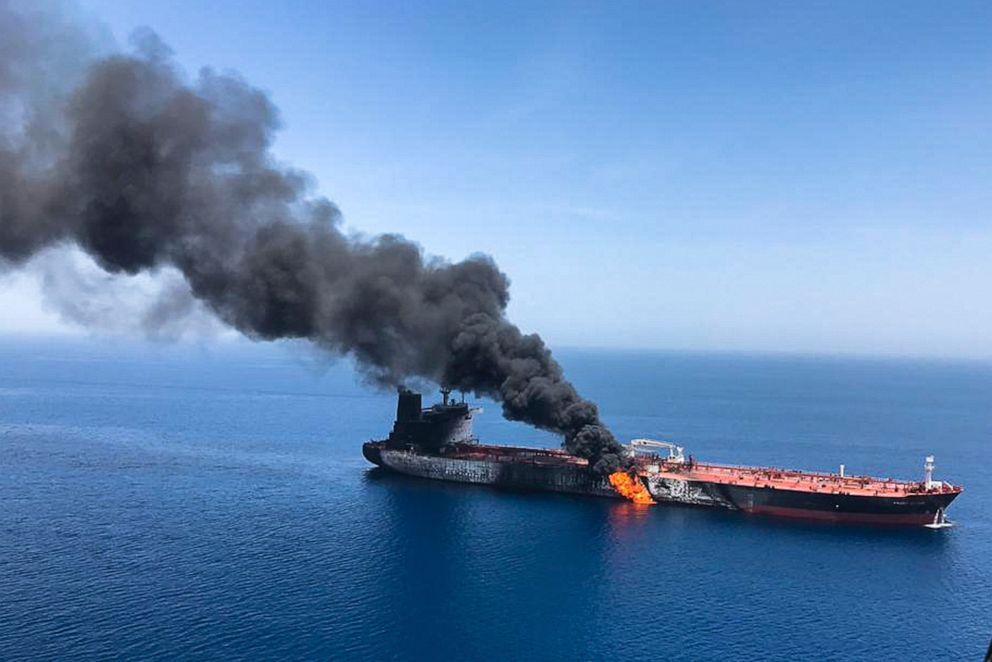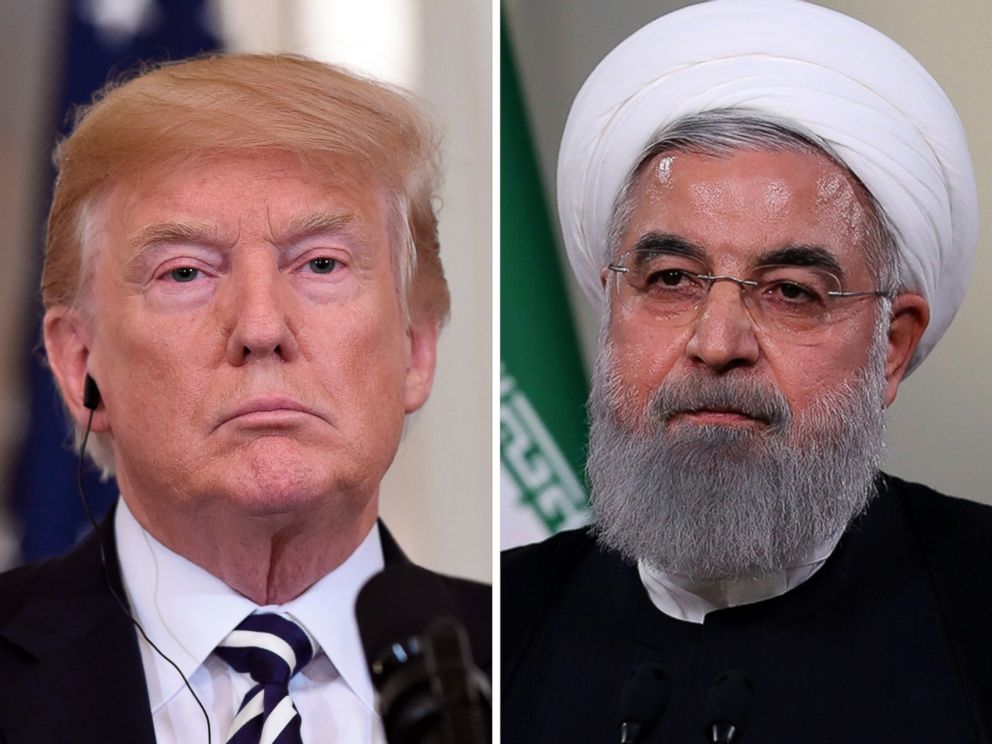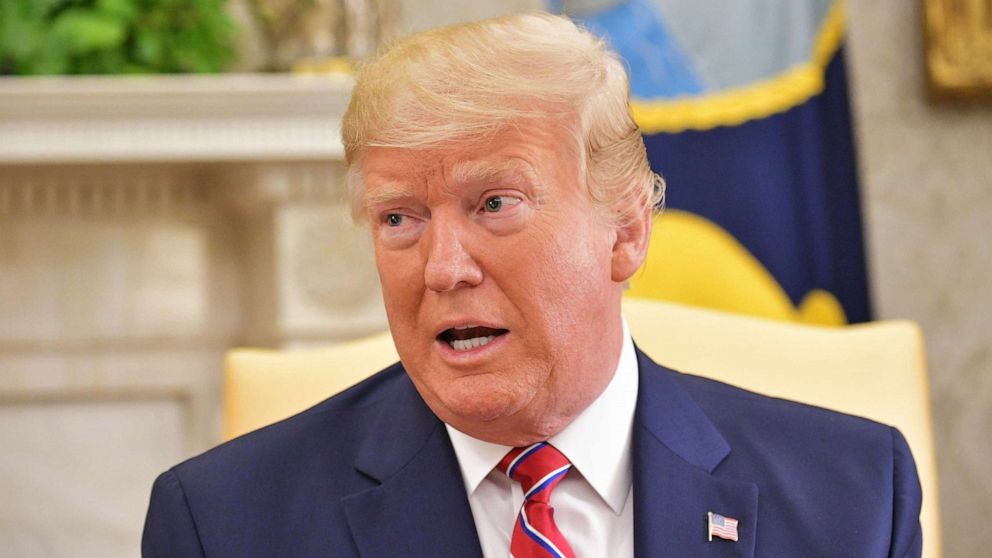Trump blames Iran for oil tanker attack, won't say how US plans to respond
President Donald Trump on Friday directly blamed Iran for the attack on two oil tankers in Gulf of Oman, pointing to video the Pentagon released as evidence of Iran’s culpability, but when pressed would not reveal how the United States would respond despite his earlier threats to do so.
“Iran did do it,” the president said in an interview with Fox News Friday morning.
“You saw the boat, I guess one to have mines didn't explode and it has essentially got Iran written all over it. And you saw the boat at night trying to take the mine off the boat, unsuccessfully took the mine off the boat and that was exposed. And that was their boat, that was them, and they didn’t want the evidence left behind. It was them that did it,” Trump continued.

Iran denies it carried out the attack, which comes just weeks after a similar attack that the United States also said was Iran’s doing but did not make any evidence public.
Amid rising tensions between the US and Iran, the United States deployed an aircraft carrier to the Middle East last month in response to what the U.S. said was intelligence showing Iran or one of its proxies were planning an attack on U.S. assets.
President Trump has also issued stern verbal warnings to Iran, tweeting last month: “If Iran wants to fight, that will be the official end of Iran. Never threaten the United States again!” At another point he said, “If they do anything they will suffer greatly” apparently referring to attacks on American troop, ships or other interests in the Middle East.
But despite his declared confidence in Iran’s culpability for the latest attack, and his previous harsh warnings, the president would not say Friday how he plans to respond to Iran’s latest provocation. Instead, the president sought to shift blame to former President Barack Obama for reaching a nuclear deal with Iran and also made the case that his administration’s sanctions on Iran have been effective.
“We are being very tough. We are being very tough on sanctions,” Trump said. “When I came into office, they were an absolute terror. They were all over the place. They were in Yemen, they were in Syria. We have 14 different sites of conflict, they were in charge of every single place and they really are, they are a nation of terror and they've changed a lot since I've been president, I can tell you. They were unstoppable and now they are in deep, deep trouble.”
“How do you stop the outrageous act?” "Fox an Friends" anchor Brian Kilmeade asked.
“We are going to see how to stop,” Trump said, not offering any hint to what actions the U.S. might be weighing in response and shifted to criticizing former President Obama.
“I don't think they've talked the same way when President Obama signed agreement, they were saying death to America, they were having good time at his expense and he’s given them 150 billion in cash, cash, nobody ever heard of a thing like that and all of that money and screaming death to America, they haven't screamed death to America lately,” Trump said.

The president later said he wants to sit down at the negotiating table with Iran, but added “I'm ready when they are. I'm in no rush.”
Iran's Supreme Leader Ayatollah Ali Khamenei flatly rejected any talk on Thursday.
The president also said he’s not seeking military conflict but is instead focused on preventing Iran from becoming a nuclear power: “I'm not looking to hurt the country but they can't have a nuclear weapon. It’s that simple.”
President Trump spoke Friday to Japanese Prime Minister Shinzo Abe, who just completed a trip to Iran and thanked him for "his effort to facilitate communication with Iran."
"The two leaders discussed a range bilateral issues, including Prime Minister Abe’s recent travel to Iran and the circumstances surrounding the attacks on two tankers in the Gulf of Oman. President Trump thanked Prime Minister Abe for his effort to facilitate communication with Iran," a White House readout of the call said.
One of the attacked tankers on Thursday was Japanese-owned.
The White House would not confirm that Abe was asked to deliver a message from the president, but a senior official with Abe's office said the prime minister "told Supreme Leader Khamenei in a candid manner his own view what kind of intention President Trump had."
ABC News' Meridith McGraw contributed to this report.




